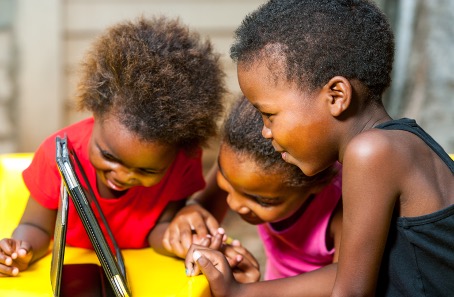There can be no doubt that Africa faces a major digital divide. While some people in the continent’s major cities can access a wide array of digital products and services at 5G speeds, others have little to no connectivity.
Bridging the digital divide needs a holistic approach that encompasses various considerations from the right technology to an enabling environment. That was the message from a panel session at the Sixth Sub Sahara Spectrum Management Conference on tackling global and regional digital divides.
Across Sub-Saharan Africa, approximately 800-million people are not connected to the mobile internet. While a large number of people (some 270-million) simply don’t have the requisite coverage, a far larger number (520-million) can access the mobile internet but don’t. There are a variety of reasons for this including cost, lack of skills, age, and location.
One way to address those divides is by using fixed wireless access (FWA). It meets many of the criteria for affordable broadband connectivity where competing technologies such as fiber and copper fall short or are uneconomical.
By putting a high-gain antenna on top of a hospital or other important community building, for example, it becomes possible to provide mobile broadband to people up to 20km away. That kind of coverage can go a long way to addressing other prevalent issues when it comes to providing broadband access to the region.
“Remote locations and geography affect infrastructure development, as do the dispersed nature of some populations and cultural practices such as nomadism,” says Irene Kaggwa Sewankambo, Acting Executive Director, UCC.
“Economics is another issue that comes into play. Many underserved areas have low consumer purchasing power, meaning that network operators are unlikely to go into those areas.”
With lower infrastructure costs and high range numbers for every mobile antenna, FWA can help overcome many of those issues. An Omdia (previously Ovum) report, titled “Fixed-Wireless Access Drives Broadband Development in Sub-Saharan Africa”, finds that there’s a very large opportunity for Sub-Saharan Africa (SSA) as the historical of poor fixed-network coverage to bridge the digital gap with FWA.
As Luke Bathopi, Director, Technical Services, Botswana Communications Regulatory Authority (BOCRA), points out, FWA fits in nicely with some of the other interventions that can help bridge the digital divide.
“We can also leverage mobile penetration, small communities, cheaper devices, alternative energy (for powering base stations), and the acceleration of economies of scale brought about by COVID-19 to overcome many of the supply side causing the digital divide,” he says.
The capabilities of 4.5G and 5G can also be provided by FWA to enable a fibre-like experience, especially in those areas where fibre is impractical or where it would take a long time to deploy. Return of investment (ROI) is less than three years and hence FWA can also be a more profitable proposition for operators. This makes FWA a commercially feasible technology for investors.
Samuel Chen, Vice President for Huawei Southern Africa region says, “The combination of technologies of 4G/5G and FWA democratizes broadband connectivity in Africa and empowers people and businesses for a sustainable and inclusive future.”
From the demand side, Sewankambo points out that achieving consensus on spectrum and standards will not only make providing mobile broadband more affordable but will also make end-devices cheaper for users, driving up their adoption and use.
“We need to get our priorities right and start with small gains,” adds Bathopi. “Government services, for example, are needed by everybody and are a great driver for closing the digital gap.”
Latest Stories
-
Letter to the new IGP: Bullion van robberies; unanswered questions and the need for justice
5 seconds -
2025 GSTEP Challenge: 15 finalists in G/A inducted to prepare for the final pitch and award ceremony
7 minutes -
Did Bawumia join a debate on any of Akufo-Addo’s budgets? – Adongo questions minority
7 minutes -
MPs eulogise former W/R Minister Anthony Evans Amoah
12 minutes -
Lands Minister calls for innovation and sustainability in surveying
19 minutes -
Mahama calls for reset of specified entities to drive national transformation
34 minutes -
Cooperative Cocoa Farmers and Marketing Association launched to address and improve farmers’ livelihoods
42 minutes -
Dampare brought a humane face to police service – Prof Aning
55 minutes -
SMEs bet on US$50bn fragrance market to drive job creation
59 minutes -
Owusu-Agyemang writes: Budget 2025, addressing energy sector gaps
59 minutes -
Photos from the swearing-in of the new IGP, COP Yohuno
1 hour -
Ghana, Japan sign $13.4m agreement to enhance Tamale’s electricity supply
1 hour -
Our people look to you for protection – Mahama tells new IGP
1 hour -
Full text: Chamber of Mines CEO’s speech at FLS Service Centre commissioning
1 hour -
Mahama urges Police Service to support new IGP
1 hour

